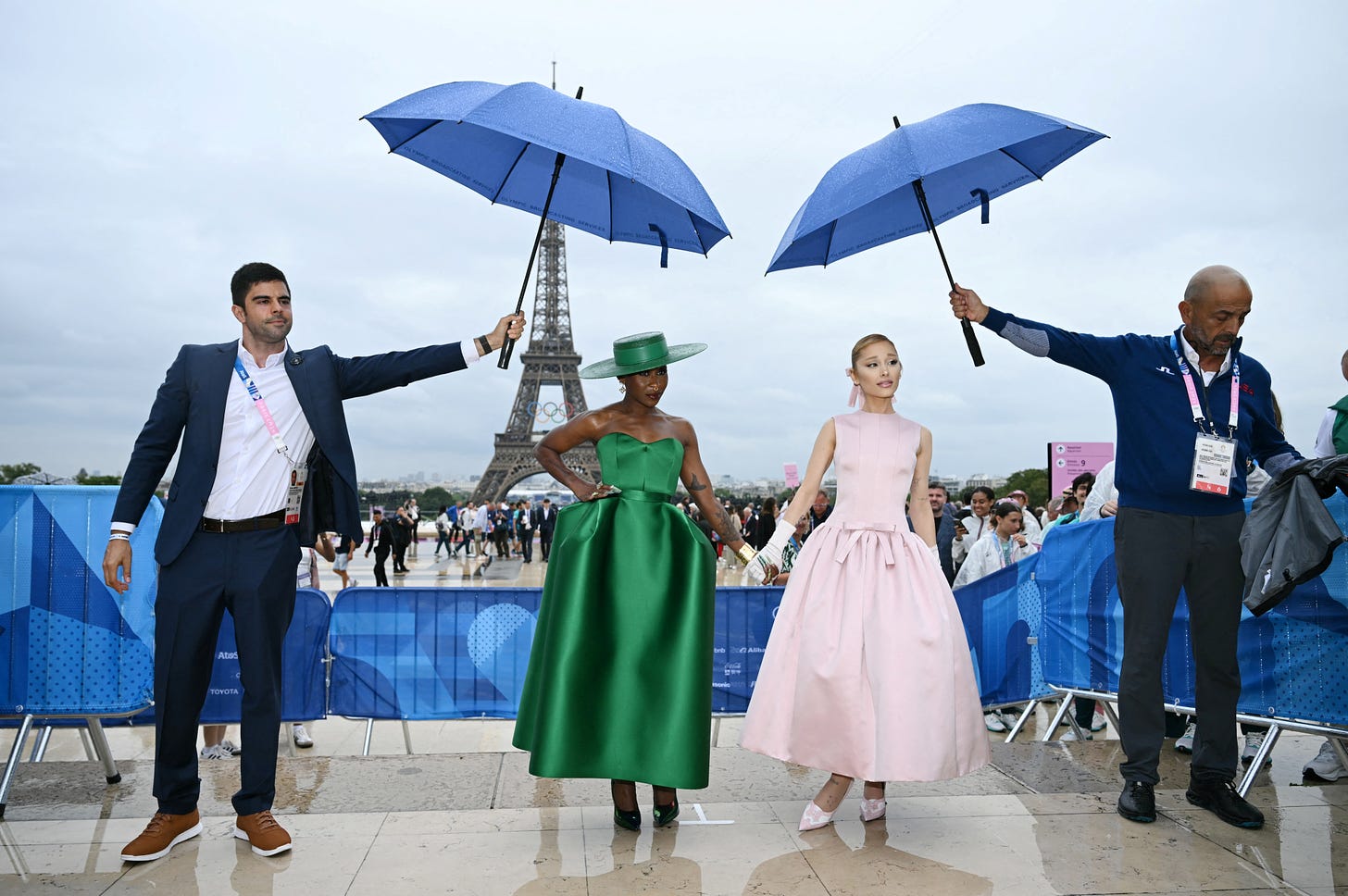Yes, We Need to Talk about Wicked Bodies
But we need to have a different conversation.
CW for discussions of extreme thinness and disordered eating behaviors.
Earlier this week, I was interviewed by journalist Chantal Fernandez for a piece she published yesterday on The Cut: We Still Suck at Talking About Celebrities’ Bodies. Chantal wanted to know how I was talking—and thinking— about the celebrity body of Ariana Grande, who has spent the Wicked press tour battling nonstop commentary on how she’s gone from thin to uber-thin. Her co-star, Cynthia Erivo, is getting some of the same scrutiny, but it’s Ariana who is rapturously compared to Audrey Hepburn; it’s Ariana who is representing not just intense thinness, but also a particular kind of hyper-feminine, blonde, Barbie-pink, Good Witch/good girl thinness.
And we don’t know what to say about it, because, as Chantal points out, we’re not supposed to talk about women’s bodies anymore. We are supposed to have evolved past snarky skinny shaming comments like “eat a sandwich” just like we are supposed to have retired the kind of anti-fat rhetoric that say, Jessica Simpson (a kind of proto-Ariana) was subjected to in the early 2000s.

Of course, as I told Chantal, any fat person knows that body shaming never went away because we experience it all the time, even when thin people think we don’t. But more broadly, as a culture: We’ve never reached the kind of utopia where women can be famous for their work, first and foremost, and not expect their bodies to be dissected and objectified. Especially if we’re fat, we are also used to our own bodies being up for this same kind of public consumption and discussion from family members, doctors, or strangers who see us in the grocery store. Of course we are concern-trolling the cast of Wicked for being too thin. We don’t know how to talk about women without talking about their bodies.



